![]()
Fr. Bento Neves Rodrigues:
Providing a secure present and a promising future for the underprivileged children in Uttar Pradesh, India
Even with the number of laws for the protection of children in India, poverty, family conflicts and other challenges make difficult conditions for children in India. Children are victims and vulnerable to child poverty, child marriage, domestic violence, begging, forced labour, sexual violence, human trafficking and online exploitation.
Deprived of their basic rights to development, protection, participation, and leisure, most of the ill-fated and abandoned children are forced to lead miserable lives. It is against this backdrop that we encounter Fr. Agnel Balbhawan, a home for underprivileged children, in Uttar Pradesh, India. Founded by Fr. Bento Neves Rodrigues, this home is a holistic programme that supports children and provides them with a secure present and a promising future.
 Rev. Fr. Bento Neves Rodrigues, a Catholic religious leader has been associated with Religions for Peace, India Chapter since 1981. At present he is the President of the Religions for Peace, India.
Rev. Fr. Bento Neves Rodrigues, a Catholic religious leader has been associated with Religions for Peace, India Chapter since 1981. At present he is the President of the Religions for Peace, India.
A soft-spoken and a very gentle person, Fr. Bento Rodrigues has provided dynamic leadership not only to Religions for Peace, India Chapter but also to the four Fr. Agnel educational institutions and one Polytechnic situated in New Delhi, NOIDA and Greater NOIDA, Uttar Pradesh, India. Presently he is also the Director of Fr. Agnel Balbhavan in Greater NOIDA, a program that reaches out to the poor and vulnerable children..
Fr. Bento Rodrigues is truly an inter-faith person and has been organizing inter-religious collaboration activities and events aimed at promoting Peace and Communal Harmony.
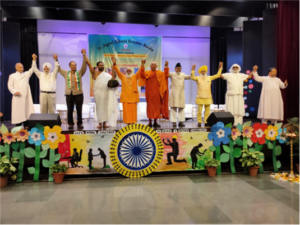
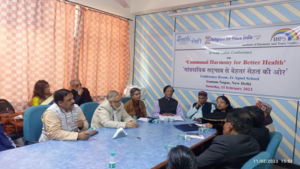
“I regularly host interfaith events at least three times a year to help inculcate an understanding of the importance of interfaith cooperation and communal harmony in the young minds of the children in our Centre” ~ Fr. Bento Rodrigues
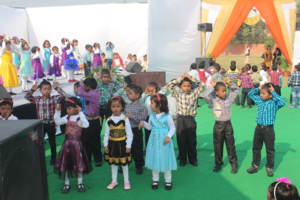 Fr. Agnel Balbhavan Centre is situated on a sprawling area of 8 acres of land and currently is home to around 234 orphans and children who are victims of very difficult circumstances. These children, both boys and girls are in the age group of 3yrs-18yrs and beyond till they are able to sustain themselves. The institution takes in more girls than boys as the abandoned girls are more vulnerable in an unsafe world around them. Girls are more prone to be forced into domestic servitude, child marriage, early pregnancies, domestic violence, sexual exploitation, and human trafficking.
Fr. Agnel Balbhavan Centre is situated on a sprawling area of 8 acres of land and currently is home to around 234 orphans and children who are victims of very difficult circumstances. These children, both boys and girls are in the age group of 3yrs-18yrs and beyond till they are able to sustain themselves. The institution takes in more girls than boys as the abandoned girls are more vulnerable in an unsafe world around them. Girls are more prone to be forced into domestic servitude, child marriage, early pregnancies, domestic violence, sexual exploitation, and human trafficking.
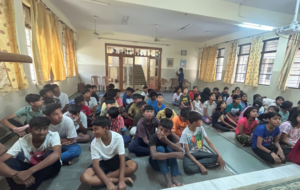 “Most of our children have both or one parent who are so poor that they cannot afford to bring up their children. Most of the children belong to parents who are facing difficult conditions. These children come not only from local areas and but also from as far as the remote North-Eastern parts of India.” ~ Fr Bento
“Most of our children have both or one parent who are so poor that they cannot afford to bring up their children. Most of the children belong to parents who are facing difficult conditions. These children come not only from local areas and but also from as far as the remote North-Eastern parts of India.” ~ Fr Bento
The Balbhavan Institution takes care of the protection of the basic rights of the children. By providing free boarding, lodging, free education, and health care, this institution provides unfortunate children with a safe, loving, and secure environment which is very essential for their proper growth and holistic development.
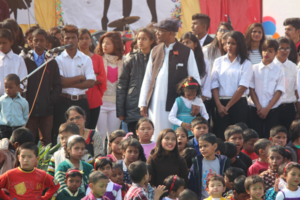
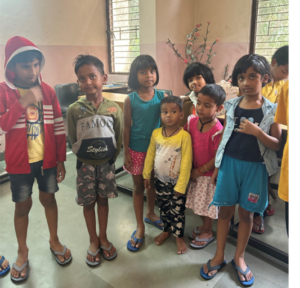
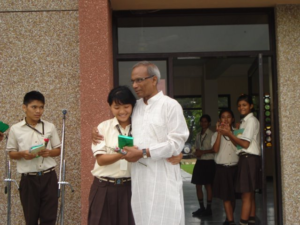 There is also a regular public school with around 2,000 students on this campus. The children from the Balbhavan study in this school along with other children who come from regular families in the neighbourhood. This opportunity provides them with a sense of equality with all other children and helps them in their wholistic development in both studies and outdoor activities like cultural programs and sports. Also, it gives them confidence and a sense of self-worth when they interact with other children in the school.
There is also a regular public school with around 2,000 students on this campus. The children from the Balbhavan study in this school along with other children who come from regular families in the neighbourhood. This opportunity provides them with a sense of equality with all other children and helps them in their wholistic development in both studies and outdoor activities like cultural programs and sports. Also, it gives them confidence and a sense of self-worth when they interact with other children in the school.
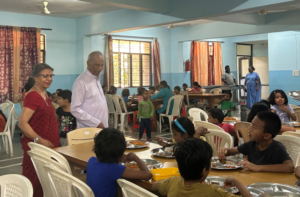 “I recently visited the Fr. Agnel Balbhawan Centre which was a very humbling and rewarding experience. It is a great joy to see the happy and bright faces of the children staying there. The home is divided into two sections. One section houses younger boys and girls in the age group of 3-10 years old. Around 100 such smaller children are divided into eight groups or families of 11-12 members and are looked after by one mother each. The older children are also encouraged to look after the younger ones like their siblings. The children are provided with nutritious meals, health-care, a loving atmosphere, and all-round well-being for their proper physical and mental development.” ~ Deepali Bhanot
“I recently visited the Fr. Agnel Balbhawan Centre which was a very humbling and rewarding experience. It is a great joy to see the happy and bright faces of the children staying there. The home is divided into two sections. One section houses younger boys and girls in the age group of 3-10 years old. Around 100 such smaller children are divided into eight groups or families of 11-12 members and are looked after by one mother each. The older children are also encouraged to look after the younger ones like their siblings. The children are provided with nutritious meals, health-care, a loving atmosphere, and all-round well-being for their proper physical and mental development.” ~ Deepali Bhanot
The older children are sent to the next building which has separate hostels for boys and girls who are looked after by supervisors. The children are not only good at studies but also at music and sports.
“I was pleasantly surprised to learn that the girls’ football team is known to be better than the boys’ football team!” Deepali continues to share.
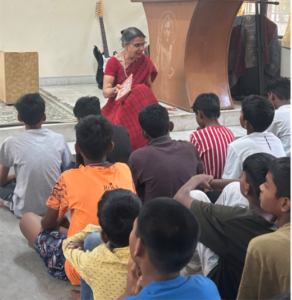 The children stay in the hostels till they finish school. After finishing school, some children go back to their families while some pursue higher studies or skill -development courses. Such students are provided hostel facilities till they are able to stand on their own feet and sustain themselves.
The children stay in the hostels till they finish school. After finishing school, some children go back to their families while some pursue higher studies or skill -development courses. Such students are provided hostel facilities till they are able to stand on their own feet and sustain themselves.
Since the year 2009, a large number of pass-outs from Fr. Agnel Balbhavan are graduates and post-graduates, employed in good positions in banks, the hospitality industry, hospitals, and educational institutions, or have started their own businesses. Some of the children who opt out of regular schooling for various reasons finish studies through Open-Schooling System and simultaneously pursue other professional and vocational courses, and successfully take up employment according to their qualifications. Thus, the Balbhawan practices hand-holding of each and every child staying here till that child is able to stand up on his or her feet.
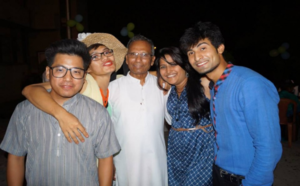 Even after settling down in their lives, the pass-outs are in regular touch with Fr. Bento, and what they have to say about their mentor, Fr. Bento speaks volumes about his contribution to their lives. This is what they have to say about Fr. Bento:
Even after settling down in their lives, the pass-outs are in regular touch with Fr. Bento, and what they have to say about their mentor, Fr. Bento speaks volumes about his contribution to their lives. This is what they have to say about Fr. Bento:
“He is the one who took us in his hand without thinking about our future….and past…and made us what we are today.”
Religions for Peace, India hopes to take up more projects for the welfare and protection of children in difficult circumstances.
Religions for Peace is the world’s oldest, largest and most representative multi-religious leadership platform, advancing common action among the world’s faith communities. Unlike any other interfaith organisation, Religions for Peace works through legally registered, representative, multi-religious platforms (Interreligious Councils) in over 95 countries and 6 regions. We convene to catalyse and promote multi-religious collaboration for the common good. In Asia, Religions for Peace Asia is our regional affiliate founded in 1976. Religions for Peace Asia is part of the global Religions for Peace movement with a mission to advance common action among religious communities in Asia and the Pacific for peace.
By Deepali Bhanot, Chair, Women of Faith, RfP, India
